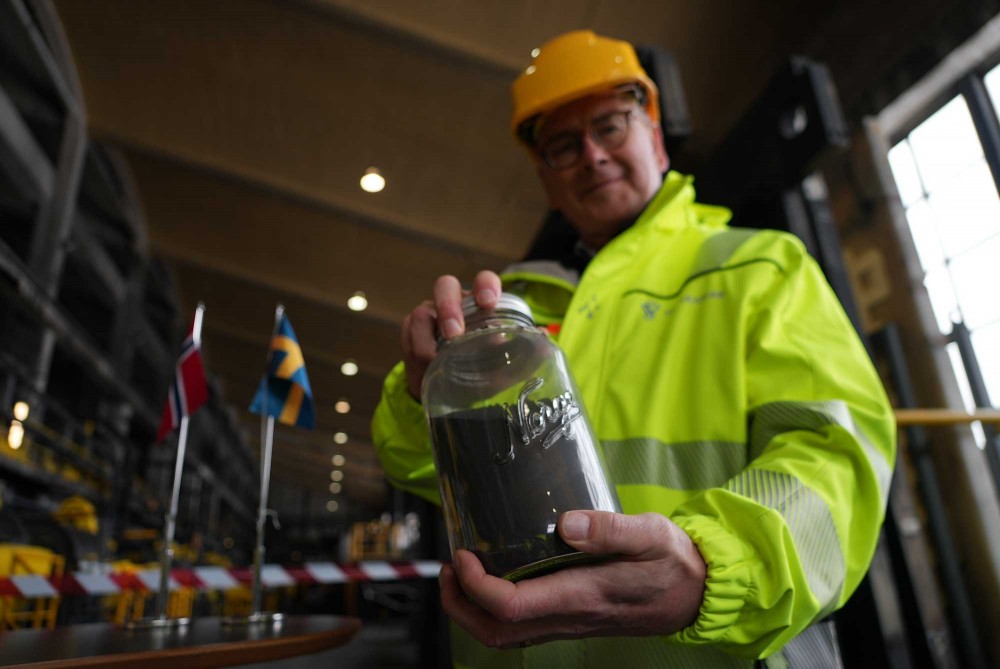Swedish developer Grangex buys iron ore mine on Norway’s border to Russia

The exit of Russian ore from the European market spurs a growing demand for companies such as Sydvaranger, Christer Lindquist says as his company announces a takeover of the Norwegian mines located only a few hundred meters from Russia.
“The product is world-class and we have all preconditions for success,” the CEO of Grangex underlined as he today announced the acquisition of the Sydvaranger iron ore mine.
The Swedish company buys 100 percent of the north Norwegian mining company for US$1,5 million. Sydvaranger from before has a US$25 million debt to U.S investment company Orion Mine Finance.
Christer Lindquist is confident that the far northern mines now steer towards a reopening, and highlights Grangex’s close cooperation with British company Anglo American.

But he admits there is still a long way to go before a reopening. It will hardly happen before 2027, he told the Barents Observer.
The Sydvaranger pits are situated less than two kilometers from the Russian border. The location could scare away potential investors, Lindquist admitted when he visited Kirkenes in March this year.

At the same time, Russia’s war of aggression against Ukraine and the subsequent expulsion of Russian raw materials from the European market now also benefits mining companies like Grangex.
“Russian ore must be replaced in Europe,” Lindquist says. “There is a deficit in the market, and we must increase our level of self-sufficiency,” he adds.

The Sydvaranger mine became the local cornerstone industry when the mine opened in 1908. It remained so until the company bankrupted in 1997. Australian developer Northern Iron reopened the mine in 2009, but it was again closed in 2015.
Local authorities now hope for more sustainable mining that will benefit local development for decades to come.
“I wish Grangex and Anglo American warmly welcome to the municipality of Sør-Varanger, and will do my best to provide the best possible conditions for the mine,” local Mayor Magnus Mæland says to the Barents Observer.
“As a municipality, we have to prepare for growth. A reopening of the mine will mean several hundred jobs and heavy investments in our local community,” he explains.

A full-scale relaunch of mining at Sydvaranger is believed to require up to 450 jobs. There is hardly any unemployment in the municipality and the recruitment of the many new people will not be easy, Chief Operating Officer Thomas Bækø admits.
“The way I see it, the biggest challenge is not technical issues – the mine and processing plant are in good shape – but rather issues of competence and people,” he says to the Barents Observer.
The 450 people workforce will have to include both commuters and locals, he explains. He underlines that the restart of local mining will bring new positive development

“This is a great day for us working in the company, but also for the whole local community. I believe Sydvaranger can help speed up local development, but first of all it gives people something positive, that we get outside investments in our company and our society.”
But also Bækø underlines that the reopening will not come very soon.
“We must not have unrealistic expectations. A big project like Sydvaranger must be developed over time.”
Located in Kirkenes, Norway, just a few kilometres from the borders to Russia and Finland, the Barents Observer is dedicated to cross-border journalism in Scandinavia, Russia and the wider Arctic.
As a non-profit stock company that is fully owned by its reporters, its editorial decisions are free of regional, national or private-sector influence. It has been a partner to ABJ and its predecessors since 2016.